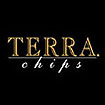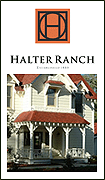Officials
Want School Ban On Energy Drinks
Source:
drudgereport.com / WCBSTV.com
HILLSBOROUGH,
N.J. (AP); They can be popular because they're sweet,
they give you a lift and they have hip-sounding names like Red
Bull and Spike Shooter.
But
school officials across the country aren't as buzzed about caffeinated
energy drinks as some of their students. They're worried about
young people gulping down too much caffeine˜and getting
so hyper that they lose focus on their studies.
"Being
hepped up on caffeine can be a distraction to your learning,"
said Joe Trybulski, principal of Hillsborough Middle School
in central New Jersey.
The
Hillsborough school, with more than 1,200 seventh and eighth
graders, is among a growing number across the country that have
banned or are considering banning energy drinks from their campuses.
Trybulski
has found parents supportive of the ban since it went into effect
in April, and teachers haven't had to take energy drinks away
from any students.
"They
get enough junk all over the place so I support it," Pam
Christian said as she picked up her 13-year-old son, Sam, on
one of the last days of school in June.
Sam
Christian said a lot of students like energy drinks. "But
it may just hurt us instead, because of all the caffeine,"
he said.
Energy
drink industry representatives said they don't market directly
to children, that the cost of around $2 to $4 a can is geared
toward adults, and that the drinks generally have less caffeine
than coffee.
"Are
you going to start carding kids at coffee houses and candy shops?"
said Craig Stevens, a spokesman for the Washington, D.C.-based
American Beverage Association, which has energy drink companies
among its members.
Patrice
Radden, a spokeswoman at Red Bull's U.S. offices in Santa Monica,
Calif., said the company's product is safe. "We can't imagine
why a school would feel the need to impose such a ban,"
Radden said.
An
8.3 ounce can of Red Bull has 76 milligrams of caffeine, about
twice as much as the 35 milligrams in 12 ounces of Coca-Cola
but less than the 95 milligrams typically found in 8 ounces
of brewed coffee, according to the Mayo Clinic's Web site.
Dietitians
say there isn't any proof that energy drinks harm children,
but that young people feel the effects of caffeine more than
adults˜and that they can get into a harmful cycle with
energy drinks.
"They
have trouble sleeping. They wake up unable to concentrate. They
give themselves more of a buzz with these energy drinks. And
then they have more anxiety," said Dawn Jackson Blatner,
a dietitian in Chicago.
Marilyn
Tanner-Blasiar, a pediatric dietitian in St. Louis, said too
much caffeine can cause insomnia, or even accelerated heart
rates.
"It's
those stimulant properties that we have to be nervous about,"
Tanner-Blasiar said.
In
February 2007, students began reporting health problems at Doherty
High School in Colorado Springs, Colo., after the convenience
store across the street started promoting an energy drink called
Spike Shooter, said Jill Martin, who was the school's principal
until recently.
Half
a dozen students complained to the school nurse about accelerated
heart rates and two had to go to the emergency room, Martin
said. The school of more than 2,000 ended up banning the Spike
Shooter drinks from its campus, and got the convenience store
to stop promoting it.
"The
kids were really struggling when handling it properly. It is
obviously very strong stuff," Martin said.
Colorado-based
Spike LLC said the company's product is meant for adults, not
children.
Worries
about health problems have caused other schools to ban energy
drinks. In Coldwater, Mich., the school board recently approved
a ban for the roughly 800 sixth- through eighth-graders at Legg
Middle School.
"Some
teachers were seeing kids either being really nervous or jumpy
or some later in the day˜they called it a caffeine crash˜didn't
have a lot of energy," said Gary Dancer, a seventh-grade
teacher.
Some
schools have stopped short of a ban, such as Manville High School
in New Jersey, where principal Mary McLoughlin sent a warning
letter to parents in March after the school nurse said students
were complaining about being dizzy and hyper and unable to focus.
Students told the nurse they were skipping breakfast and having
energy drinks before school, McLoughlin said.
Last
fall, the Lake Washington School District outside of Seattle
asked the booster clubs running concessions at junior high and
high school sports games to stop selling energy drinks.
Nancy
Lytle, a dietitian who advises the district of 24,000 students,
said officials noticed that students were getting into fights
in the stands. After the energy drinks were gone, there was
a noticeable change, Lytle said.
"They
weren't huddling around the concession stand," Lytle said
of the students. "They were up in the stands watching the
football game."















